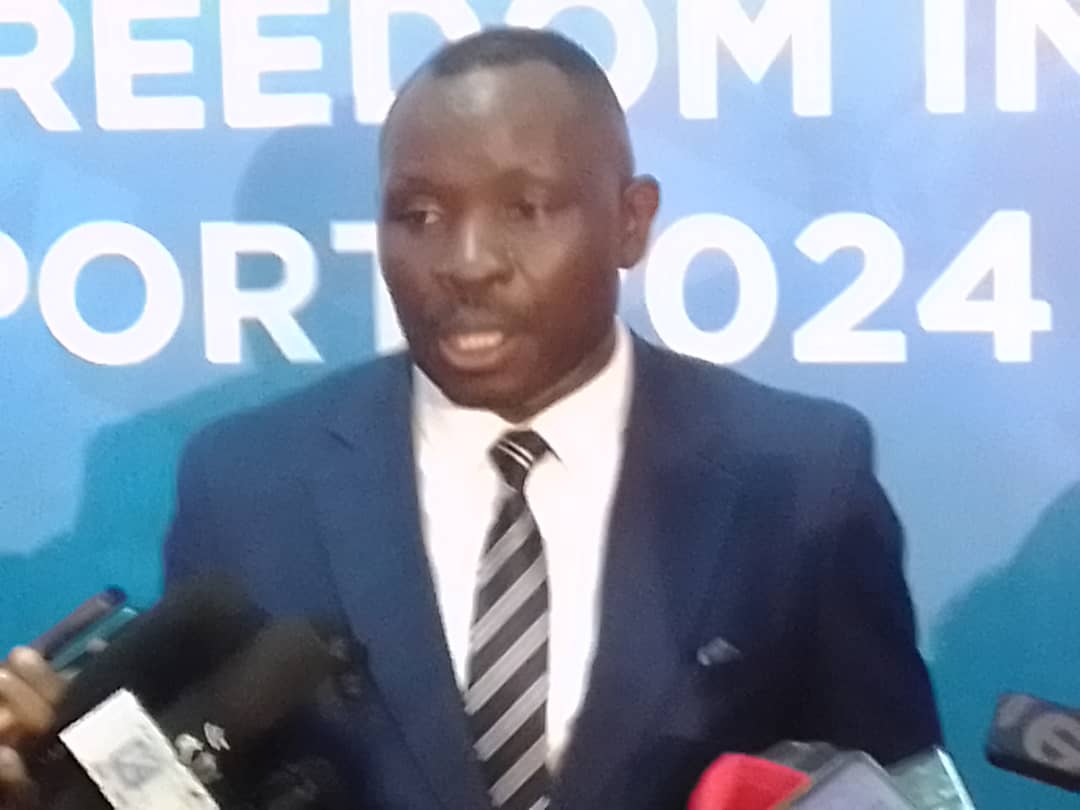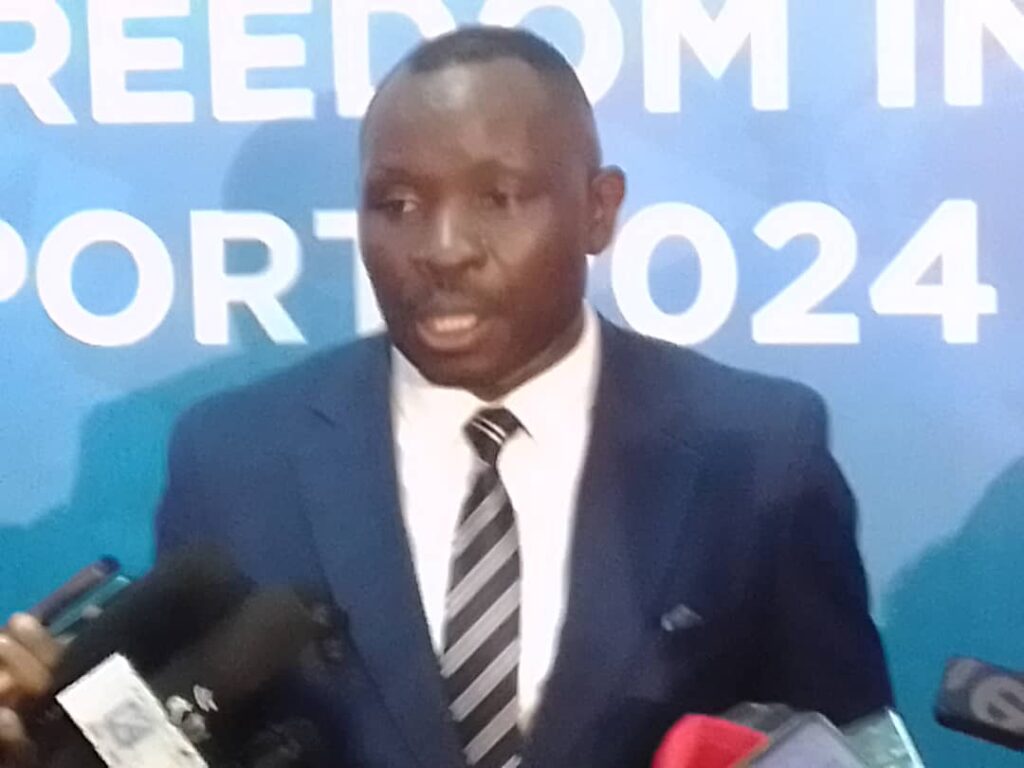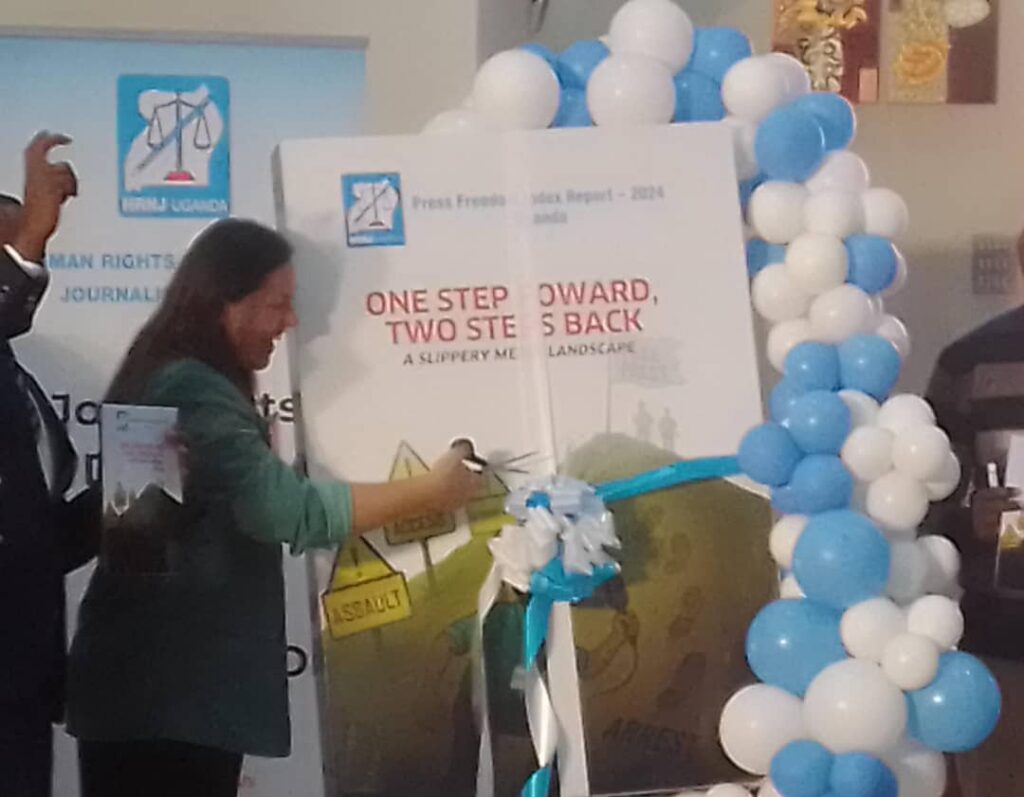
 Tiger FM
Tiger FM

 Tiger FM
Tiger FM
2 May 2025, 4:23 pm
By Ronald Ssemagonja
The Human Rights Network for Journalists (HRNJ) has today launched the 16th edition of the Press Freedom Index report at Imperial Royale Hotel in Kampala. Julius Esegu, the HRNJ Executive Board Chairperson, began his address by thanking the development partners who supported the successful compilation and publication of the report. “HRNJ-Uganda extends its deepest appreciation to the Board of Directors for your steadfast guidance and oversight throughout this process. Your strategic direction and leadership continue to shape our work and inspire our nation. A special thank you goes to our development partners: the Royal Danish Embassy, the Embassy of the Netherlands in Uganda, the Embassy of Sweden in Uganda, and the Embassy of Ireland in Uganda, for supporting the development and publication of this report,” he said.
According to Esegu, in 2024, press freedom in Uganda continued to face profound instability despite moments of progress, most notably a significant court ruling affirming the constitutional rights of journalists. However, the year was largely overshadowed by a troubling escalation of abuses. These gains, instead of signalling a shift towards greater protection, exposed the entrenched efforts by both state and non-state actors to suppress independent journalism. Emerging threats further compounded this fragile environment. Cybersecurity breaches, disinformation campaigns, and the misuse of artificial intelligence raised new concerns about the safety and ethical integrity of journalism. Female journalists, in particular, were disproportionately targeted, facing gender-specific abuses that limited their participation in the media space.
“As Uganda moves closer to another election cycle, the urgency to safeguard press freedom becomes even more critical. Electoral periods have historically been marred by increased violence and restrictions against journalists, and the current climate suggests that 2025 could follow a similar pattern. Meanwhile, the growing influence of digital platforms continues to shape the media landscape, amplifying both opportunities for civic engagement and avenues for repression,” he said.
It should be noted that the report offers more than just a review of the challenges faced by the press in 2024; it is a rallying cry. It calls on government institutions, civil society, media organisations, development partners, and the Ugandan public to renew their commitment to protecting media freedom. “A strong, independent press is essential to transparency, accountability, and the protection of human rights. Let us stand united in defending the rights of journalists and ensuring that the press remains a cornerstone of Uganda’s democratic journey,” Esegu concluded.
HRNJ-Uganda Executive Director Robert Sempala, while presenting the report summary, titled “One Step Forward, Two Steps Back: The Slippery Media Landscape,” revealed that the Uganda Police had been the top agency violating journalists’ rights, followed by the Uganda People’s Defence Forces and others. The report states that there has been a slight reduction in incidents compared to the 2023 report. “632 incidents involving journalists were recorded in 2024,” he said. The majority of the journalists affected were from television, radio, print, and online media. There is a recommendation for Parliament to discuss the report and find a lasting solution. Sempala urged the government and other stakeholders to join hands in protecting journalists’ rights.
Kirstine Primdel Sutton, in her remarks, applauded the dedication of HRNJ-Uganda and reaffirmed the Embassy’s continuous commitment to supporting media freedom.

